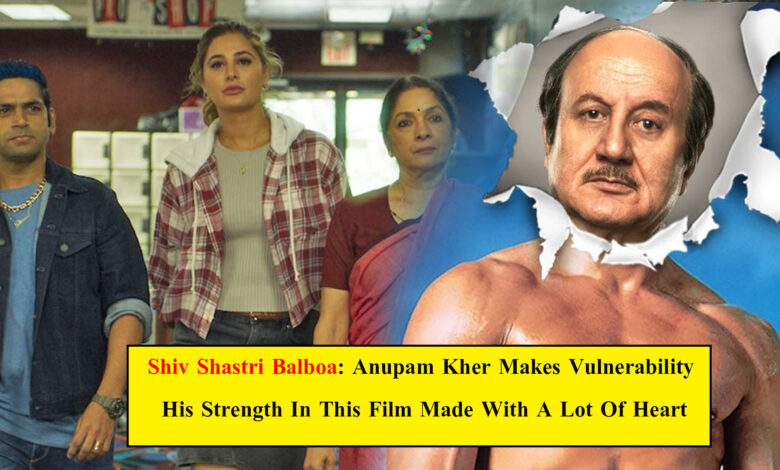
A retired bank officer Shiv Shankar Shastri (Anupam) moves to Ohio to now spend the rest of his retired life with his son who is settled with a wife and two sons in a foreign land. After monotony kicks in and he is away from visiting his dream location, the stairs in Philadelphia where Sylvester Stallone climbed in the climax of Rocky, is far-fetched, he meets a woman who has been suffering from trauma. She decides to elope and he accompanies her.
The wilderness of the youth is captured from all angles in cinema. The adrenaline of it, the fun in eloping, and the complexities of it all, we have seen enough. But time and again when filmmakers place people in their late age trying to break free, it comes in as fresh air. There is baggage more than that of any youngster. There’s an entire existence that they bet when they decide to choose liberation over their normal life. In Shiv Shastri Balboa, exactly the same happens and you are not allowed to complain.
Written by Ajayan Venugopalan himself, this is a story probably inspired by his father, and by the feel of it, it all seems very personal. There is a melancholy in loneliness but can a person suffering at the hands of alone find redemption if he is placed with a family? Maybe not. Ajayan in his debut feature imagines a man who has lived a full life in his mind. The only wish that now remains to be fulfilled is his dream to climb the stairs that were once climbed by Sylvester Stallone in one of the Rocky movies. The clever inclusion of the idea that how cinema not only inspires but sometimes even becomes the reason for someone’s existence is reflected so well.

With Shiv Shastri Balboa the writer successfully tries to capture every aging parent that at heart is young but for their children are now a responsibility that they were never given officially. Suddenly the children become the parents and the parents are now told to take the back seat. But what if they don’t want to? Come let’s see how Shiv Shastri does it. The man is shaped with so much innocence that there is no iota of evil in him. He is a pure soul with some very problematic ideologies in today’s times but that is all our parents mostly. He just aims for a companion and that is necessarily not his family, he finds one in a neighbour’s house help who is another lonely soul.
Through these two heart-warming characters, the film navigates through multiple things including the life of Indian immigrants in a foreign land. The gaze through which brown skin is seen, how not all parents just need the comforts of a house but some want a life that is unconventional. The biggest learning has to be that liberation has no age, one can find it at any moment and maybe someone’s liberation is in watching somebody else liberate.

Yes, this one is not without loopholes. For a very long chunk, the film forgets the Rocky angle of so evidently endorses in the first half and focuses on the many other subplots. There is an entire sequence that is needed but feels not rightly included. Nargis Fakhri gets to be a character that creates no impact. But every time an honest Anupam and a very determined Neena grace the screen, they win every bit of it.






